Prof. Alexis in Best 10 Electronics and Electrical Engineering Scientists in Norway for 20244/14/2024 Prof. Alexis is ranked in the 10 Best Electronics and Electrical Engineering Scientists in Norway for 2024 by Research.com among other great colleagues! Prof. Alexis is ranked at position #8 according to the list of Research.com. Once more, a huge thanks to my team with whom I have the honor to work together!
0 Comments
Prof. Kostas Alexis is recognized in the "2024 AI 2000 Most Influential Scholar Honorable Mention" by AMiner for position #60 in their ranking in the field of Robotics.
Prof. Alexis is ranked in the 10 Best Electronics and Electrical Engineering Scientists in Norway for 2023 by Research.com among other great colleagues! Once more, a huge thanks to my team with whom I have the honor to work together!
Prof. Alexis receives the "AI 2000 Most Influential Scholar Honorable Mention" by AMiner for position #85 in their ranking in the field of Robotics.
We received the IEEE ICRA2022 Outstanding Deployed Systems Paper Award for our work on "Autonomous Teamed Exploration of Subterranean Environments using Legged and Aerial Robots"! The work is in collaboration with our amazing colleagues from Robotic Systems Lab (Marco Hutter) and Autonomous Systems Lab (Roland Siegwart). Special congratulations to the first two authors Mihir Dharmadhikari and Mihir Kulkarni!
Team CERBERUS won the DARPA Subterranean Challenge and a $2,000,000 prize reward that comes along! Team CERBERUS is an international consortium involving the University of Nevada Reno (UNR), ETH Zurich, the Norwegian University of Science and Technology (NTNU), University of California Berkeley, University of Oxford, Flyability, and Sierra Nevada Corporation. The Team Leader is Prof. Dr. Kostas Alexis - director of the Autonomous Robots Lab at NTNU (who was before at UNR when the grant was acquired). The team leadership further involves Prof. Dr. Marco Hutter (Robotic Systems Lab, ETH Zurich), Prof. Dr. Roland Siegwart (Autonomous Systems Lab, ETH Zurich), Prof. Dr. Mark Mueller (UC Berkeley), Prof. Dr. Maurice Fallon (Oxford), Adrien Briod (Flyability), Prof. Dr. Eelke Folmer (UNR), and Sierra Nevada Corporation’s company leaders. CERBERUS stands for “CollaborativE walking & flying RoBots for autonomous ExploRation in Underground Settings” and throughout the three years of the project developed a team of legged and aerial robots capable of autonomously exploring diverse subterranean environments such as underground mines and tunnels, metropolitan sub-surface infrastructure, and natural cave networks. After successfully going through the Tunnel Circuit and the Urban Circuit of the DARPA Subterranean Challenge, Team CERBERUS qualified for the Final Event (the “Cave Circuit” planned for early 2020 was canceled due to the Covid-19 pandemic). In the Final Event, DARPA designed an environment involving branches representing all three challenges of the “Tunnel Circuit”, the “Urban Circuit” and the “Cave Circuit”. Robots had to explore, search for objects (“artifacts”) of interest, and report their accurate location within underground tunnels, infrastructure similar to a subway, and natural caves and paths with extremely confined geometries, tough terrain, and severe visual degradation (including dense smoke). Team CERBERUS deployed a diverse set of robots with the prime systems being four ANYmal C legged systems. In the Prize Round of the Final Event, the team won the competition and scored 23 points by correctly detecting and localizing 23 of 40 of the artifacts DARPA had placed inside the environment. The second team, “CSIRO Data61” also scored 23 points but reported the last artifact with a slight further delay to DARPA thus the tiebraker was in favor of Team CERBERUS. The third team, “MARBLE” scored 18 points. The DARPA Subterranean Challenge was one of the rare types of global robotic competition events pushing the frontiers for resilient autonomy and calling teams to develop novel and innovative solutions with the capacity to help critical sectors such as search and rescue personnel and the industry in domains such as mining and beyond. The level of achievement of Team CERBERUS is best understood by looking at all the competitors in the “Systems Competition” of the Final Event. The participating teams including members from top international institutions, namely:
We congratulate all members of Team CERBERUS and we are proud of this incredible and historic achievement! Most importantly, we are excited to be part of this amazing community pushing the frontier of resilient robotic autonomy in extreme environments. Below a video from our legged robots exploring the SubT Final Event environment: The video below allows to best understand how the autonomous exploration of our team works: Below the presentations for our 5 IEEE ICRA 2021 papers:
Our lab got 5 IEEE ICRA papers (one of which with RA-L journal option). Congratulations to all the team members and collaborators for this great result! We will present the following contributions:
Videos from some of our papers follow: We are co-organizing two IEEE ICRA 2021 workshops on the following topics:
|
AuthorNews and updates from the Autonomous Robots Lab. Archives
April 2024
Categories |
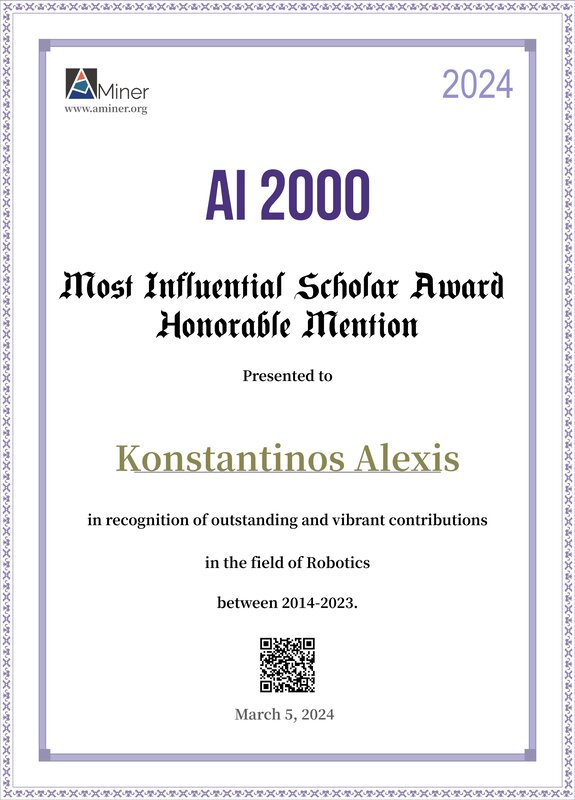
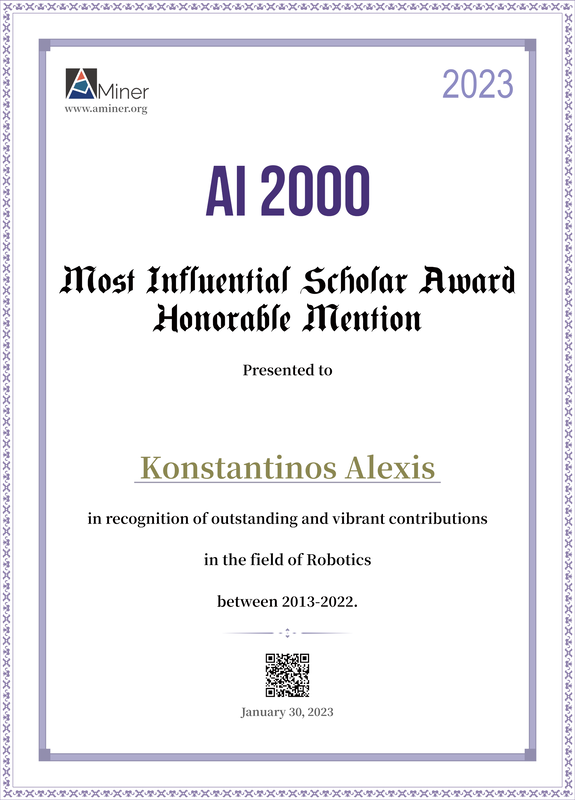
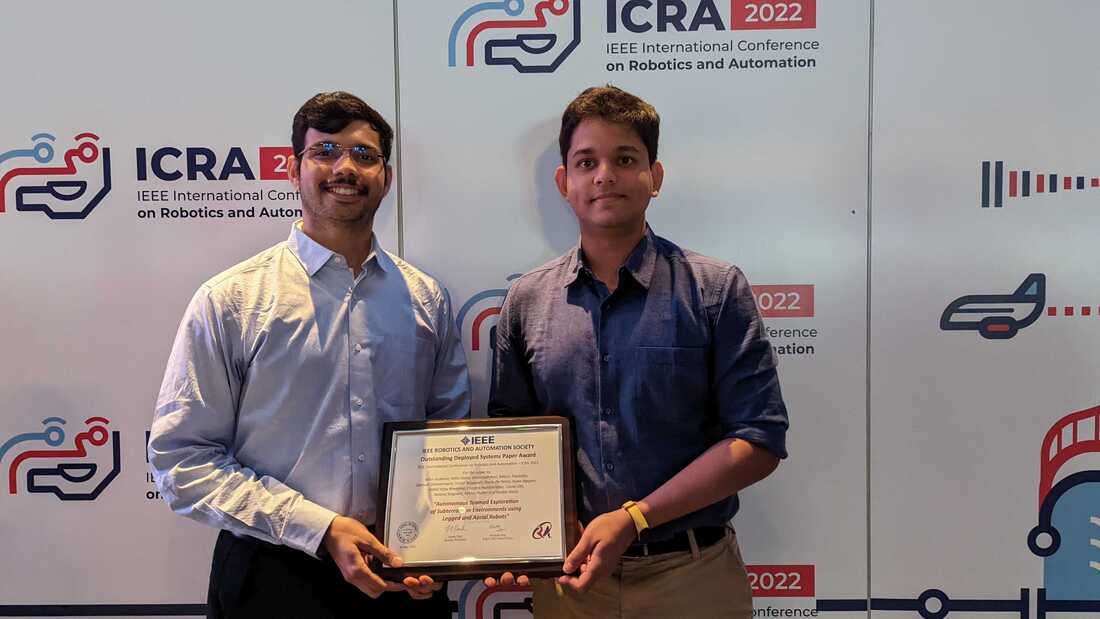
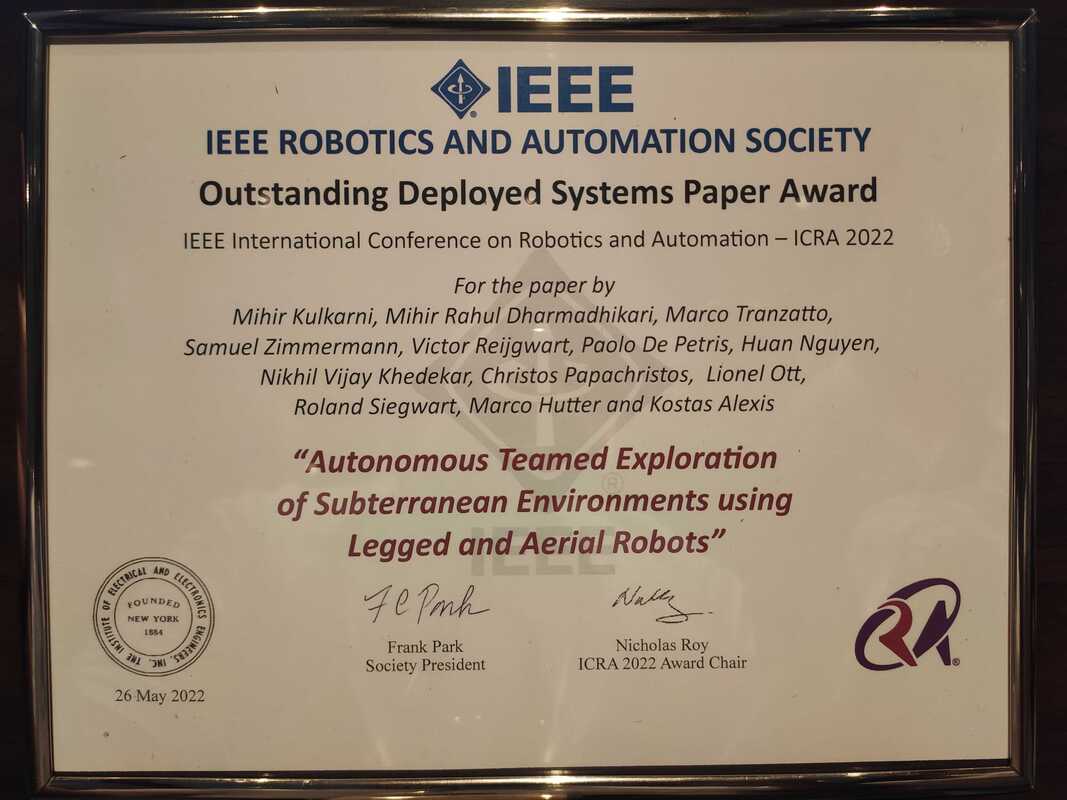
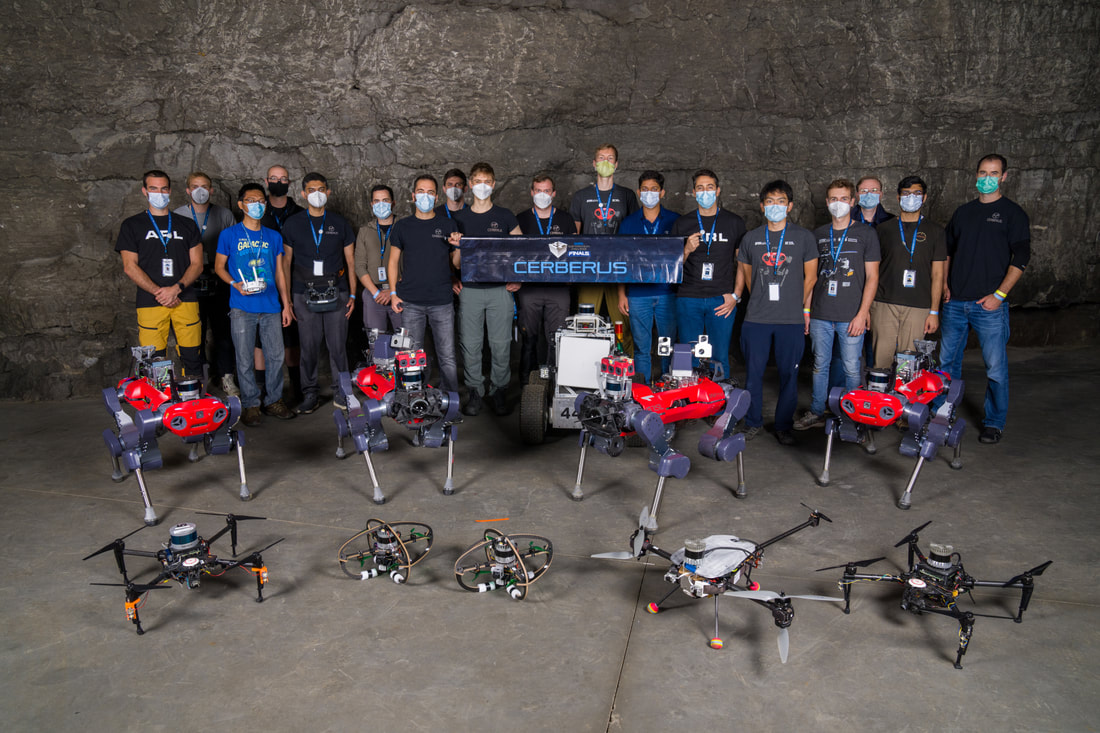
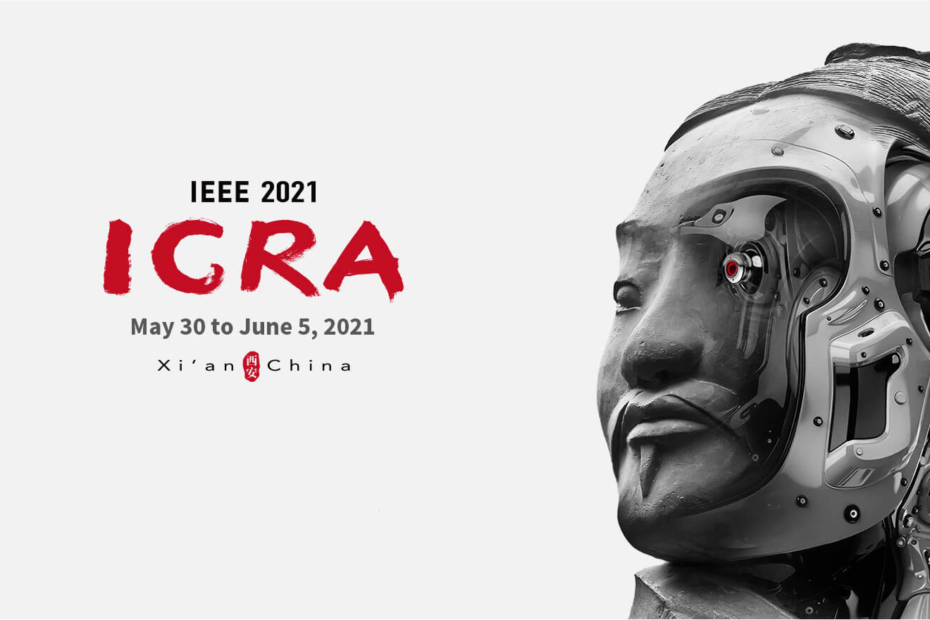

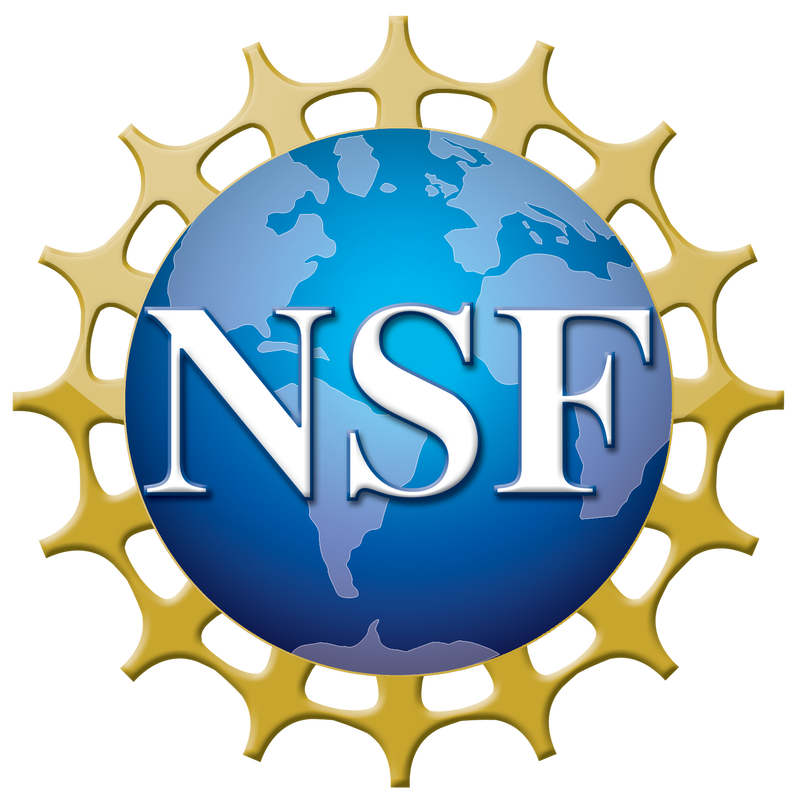
 RSS Feed
RSS Feed